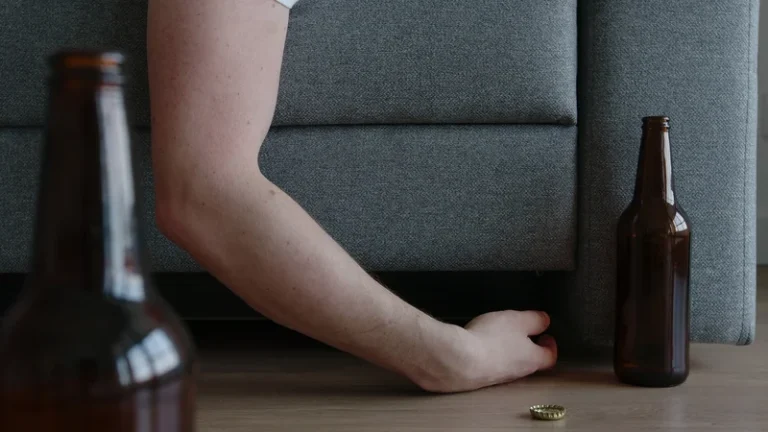Sober living
How To Stop Drinking Alcohol

Quitting alcohol has a number of important mental health benefits. In addition to improving your mental well-being, it may lower your risk for some mental illness and contribute to better sleep. According to Volpicelli, the cognitive changes people can have from drinking—like memory trouble, slowed reaction time, difficulty controlling behavior, and poor concentration—get worse over time.
Staying Healthy
- Reducing your drinking beforehand often makes it easier (and safer) to quit completely.
- Volpicelli says that some of the negative effects of alcohol on mental health can be reversed if you stop drinking.
- Know what you want your relationship with alcohol to look like going forward, make a long-term plan, and be prepared to stick with it.
- Filling your schedule with activities that don’t involve alcohol will help normalize sobriety, and get you moving forward to a new chapter.
- What’s most important is looking at your drinking habits and finding a way to cut back that works for you.
28 days More of a rom-com than a serious look at alcohol addiction, this is a more light-hearted transformation film. After destroying her sister’s wedding, Sandra Bullock’s character is forced to confront her issue with alcohol, then enters rehab and comes out 28 days later. It definitely feels like there’s some kind of psychologically soothing effect of cracking open that booze-free beer or popping that ‘Nosecco’ cork. I learnt recently that it takes alcohol seven minutes to hit the brain, so perhaps it’s not too dissimilar to that fake initial ‘relief’ you get when drinking the real thing. There’s also a hypnotherapy section at the end – and absolutely no role-play or group exercises, don’t worry!
Careers – Join Our Team
It may also mess with your sleep, and poor sleep hygiene can lead to further health concerns, like obesity and diabetes. Knowing all the negative effects alcohol has on your physical and mental health can make it easier to understand why you’re better off without it. If you don’t have people currently in your life who can help you quit drinking, you’re still not in this alone. There are people willing and waiting to support you, guide you and love you through the ups and downs of ending unhealthy drinking patterns. Even if you know that there are benefits to quitting alcohol, it does not mean that it’s easy to stop drinking—especially if you’ve been misusing alcohol for a long time. You might turn to friends, family, and loved ones for this type of support, but this can be challenging if your past alcohol use has alienated people in your life.
How to stop drinking alcohol: Tips for quitting, support, and more
If you believe you have a serious problem with alcohol, it’s best to speak with a doctor and have medical supervision as you work to quit alcohol. Whether you want to take a break from drinking or you’re quitting alcohol for keeps, bring in some pros to help. If you don’t have a regular doctor, see a primary care provider or visit a free health clinic near you. The NIAAA also offers pointers about resources for low- and no-cost treatment and support options, like getting in touch with your state’s agency for substance abuse help.
- Rather than quitting drinking abruptly (or “cold turkey”), many professionals recommend gradually reducing your drinking (or tapering) over time.
- The better you know how to handle peer pressure or awkwardness around your sobriety, the more comfortable you’ll feel in the moment.
- One way to combat that feeling, Dr. Koob says, is to check in with yourself after a few months of sobriety to take stock of the benefits you’re reaping.
- Ria Health offers access to many of these tools, including prescription medications, recovery coaching, and online support groups—all through a HIPAA-compliant smartphone app.

When those cravings kick in, it’s normal to feel anxiety, fear or shame. These negative emotions coupled with a desire to drink are challenging to navigate, especially alone. They could be family, friends, significant others or mentors. Positive support persons are those who recognize your goals and stand by you as you work to accomplish them. They’re the people you feel safe being vulnerable with, and you trust to hold you accountable.
It’s often easier to turn down a drink when you don’t have to do it alone. It’s possible to develop a better relationship with alcohol and make more mindful, informed choices about drinking tips to quit drinking without total sobriety. Drinkers Like Me – with Adrian ChilesI’m sure so many social drinkers will empathise with Adrian Chiles in this very honest and entertaining documentary.

This was a game-changer for me, and also had the added benefit of helping you set a very clear date in your diary for quitting – as you won’t ever want a drink again after leaving the session. Allen Carr is also the author of the bestseller, The Easyway to Stop Smoking. While it has been suggested that one or two drinks per day may have health benefits, one meta-analysis https://ecosoberhouse.com/ found that even moderate intake has serious health risks. Women who had two or more drinks per day and men who had four or more drinks per day had significantly increased mortality. Like other symptoms, the impact on mood depends on the amount and duration of your alcohol use. For light or moderate drinking, you might experience a more temporary, mild effect on mood.
Setting Healthy Boundaries in Relationships
Removing triggers helps support the goal of stopping drinking. Once urges and cravings are well-managed, a person may consider reconnecting with certain individuals. A person can use various strategies to help them stop drinking alcohol. It is helpful for individuals to understand their motivations and goals behind it.

Structured self-affirmation exercises that take up less time, such as answering a series of yes or no questions, can also be effective in helping people reduce or stop drinking alcohol. No matter your situation, Dr. Das emphasizes the power of enlisting help as you embark on a life sans booze. Information provided on Forbes Health is for educational purposes only. Your health and wellness is unique to you, and the products and services we review may not be right for your circumstances.
